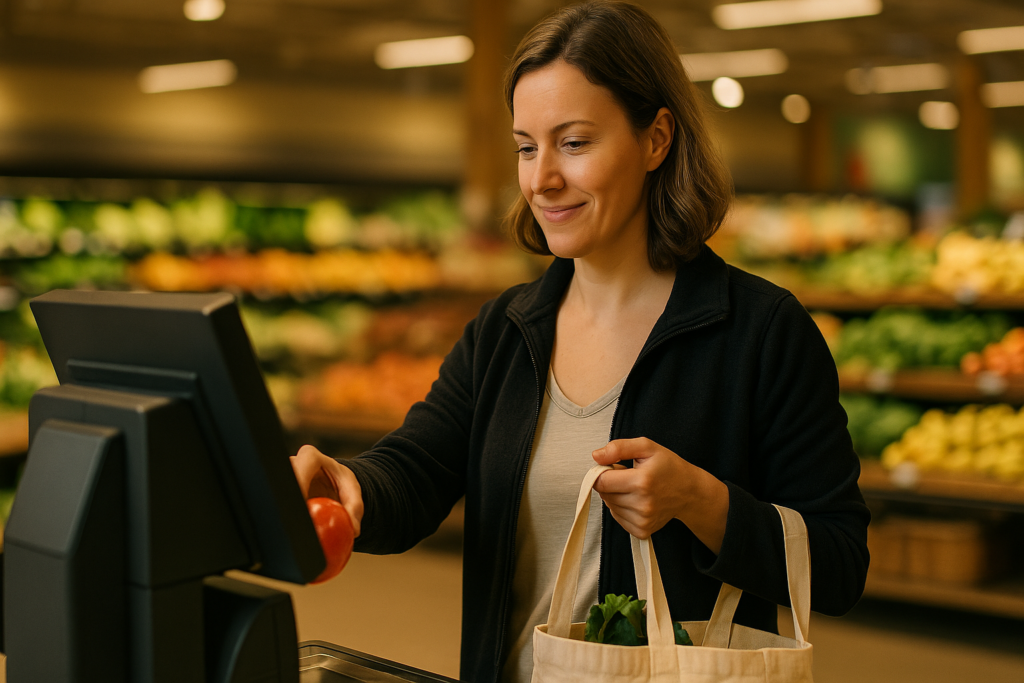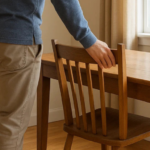Self‑checkout lanes used to be a novelty. Today they’re everywhere—from supermarkets to fast‑food counters and even hardware chains.
A 2025 NCR Voyix survey of 1,000 U.S. shoppers found that 77 percent now prefer scanning and paying for their own groceries, citing speed and autonomy as the top draws. But psychologists and consumer‑behavior researchers say the appeal of “doing it yourself” goes deeper than saving a few minutes. Our checkout choices reveal subtle patterns in personality, motivation, and even our tolerance for social interaction.
Below are eight traits that people who regularly choose self‑checkout over a staffed register are especially likely to share.
1. You’re a ruthless efficiency seeker
If you mentally calculate which queue will move fastest—or switch lanes the instant a light blinks green—self‑checkout speaks your language.
The same NCR Voyix study found that 36 percent of self‑checkout fans pick it because the lines are shorter, while 43 percent like bagging items at their own pace.
Broader research on retail wait times supports this: 82 percent of consumers will actively avoid a business if they see a long lineretailcustomerexperience.com.
Efficiency seekers experience mild time anxiety in queues, so handing the scanning gun to the shopper feels like a micro‑win for productivity.
2. You have a strong need for autonomy and control
Self‑determination theory argues that humans are happiest when they feel in charge of their actions. Self‑checkout taps that core need: you decide the order of items, the pace, even how they’re bagged.
In the NCR data, “being able to bag my own groceries” ranked just behind speed as a key motivator.
For control‑oriented personalities, eliminating the social script of “Cash or card?” creates a smoother, self‑directed flow—no small talk, no cashier judgments about your avocado‑selection skills.
3. You’re tech‑confident—and maybe even an early adopter
A landmark study of 18‑ to 22‑year‑olds at Loughborough University found that people who enjoy trying new technology are significantly more likely to view self‑checkout as easy and preferable to a staffed lane.
High “technology self‑efficacy” predicts lower error anxiety and higher perceived usefulness—two beliefs that drive adoption in the classic Technology Acceptance Model.
In other words, if you updated to the latest phone OS the day it dropped, you’re probably happy to wave a detergent bottle under a barcode scanner.
4. You’re selectively social (often an introvert)
Not everyone who picks self‑checkout is shy, but it’s often noted that avoiding “unnecessary social interactions” is a common upside shoppers mention.
Introverts conserve social energy for conversations that matter; a scripted exchange with a cashier can feel draining rather than friendly.
Self‑checkout offers a low‑friction exit, preserving bandwidth for the chat you want to have later—say, dinner with friends—rather than a forced “How’s your day?” with a stranger.
5. You crave privacy (or at least less judgment)
Buying embarrassing products? Paying with a government benefit card? Research on in‑store kiosks notes that, while they speed transactions, they also raise legitimate data‑ and personal‑privacy concerns.
The flip side is that human privacy risks disappear: no cashier sees what’s in the basket, and there’s no perceived judgment about your midnight ice‑cream run.
For privacy‑minded shoppers, self‑checkout feels like slipping on an invisibility cloak—at least from other humans’ eyes.
6. You dislike performance pressure
Social‑evaluation anxiety spikes when we feel watched—especially under time pressure. A 2014 Journal of Services Marketing model showed that technology anxiety directly reduces willingness to use any self‑service tech and is amplified by crowding and ticking clocks.
Flipping that finding, people who do choose self‑checkout tend to be low in tech anxiety and less worried about onlookers.
They’re comfortable handling an unfamiliar interface on the fly—which hints at higher overall self‑confidence and lower fear of public mistakes.
7. You have a low tolerance for waiting or crowding
Impatience isn’t always negative; it often signals a high value on time. Waitwhile’s 2023 “State of Waiting” report found customer impatience up 176 percent year‑over‑year, with long lines triggering boredom and irritation for most shoppers.
Self‑checkout literally short‑circuits that pain point: it decentralizes the bottleneck and lets you be the cashier. People who can’t stand idle time—and who notice every minute lost—gravitate toward any solution that lets them keep moving.
8. You’re task‑focused and competence‑driven
Several studies of restaurant and retail kiosks show that perceived control, convenience, and time pressure feed into a sense of efficiency that predicts repeat SST use.
Self‑checkout rewards the brain with a tiny mastery loop: scan, beep, bag—task complete. For goal‑oriented personalities, that feedback is satisfying in the same way crossing an item off a to‑do list is.
The checkout itself becomes a mini productivity task rather than a passive wait.
Putting the traits together
Of course, none of these characteristics exists in isolation. Most self‑checkout enthusiasts combine several: a tech‑savvy introvert who values speed, privacy, and the feeling of getting things done.
At the same time, the psychology behind opting for a cashier is equally rich (think social connection, reduced cognitive load, or lower tech confidence).
The next time you glide past the line and start scanning your own groceries, pay attention: are you chasing efficiency, autonomy, or simply a quieter shopping trip?
Recognizing the motivations behind a small everyday choice may help you understand—and even leverage—your deeper personality drivers in other areas of life.
















